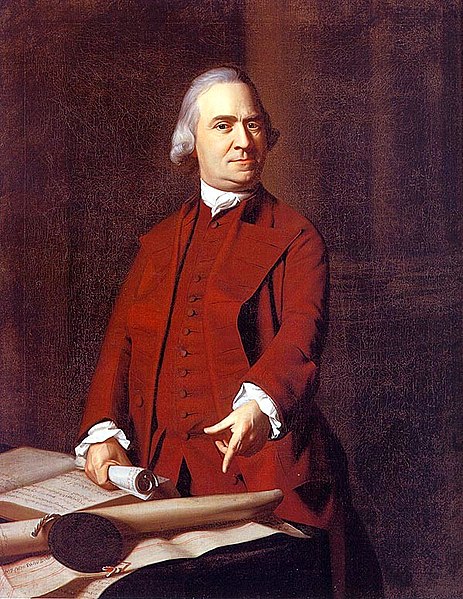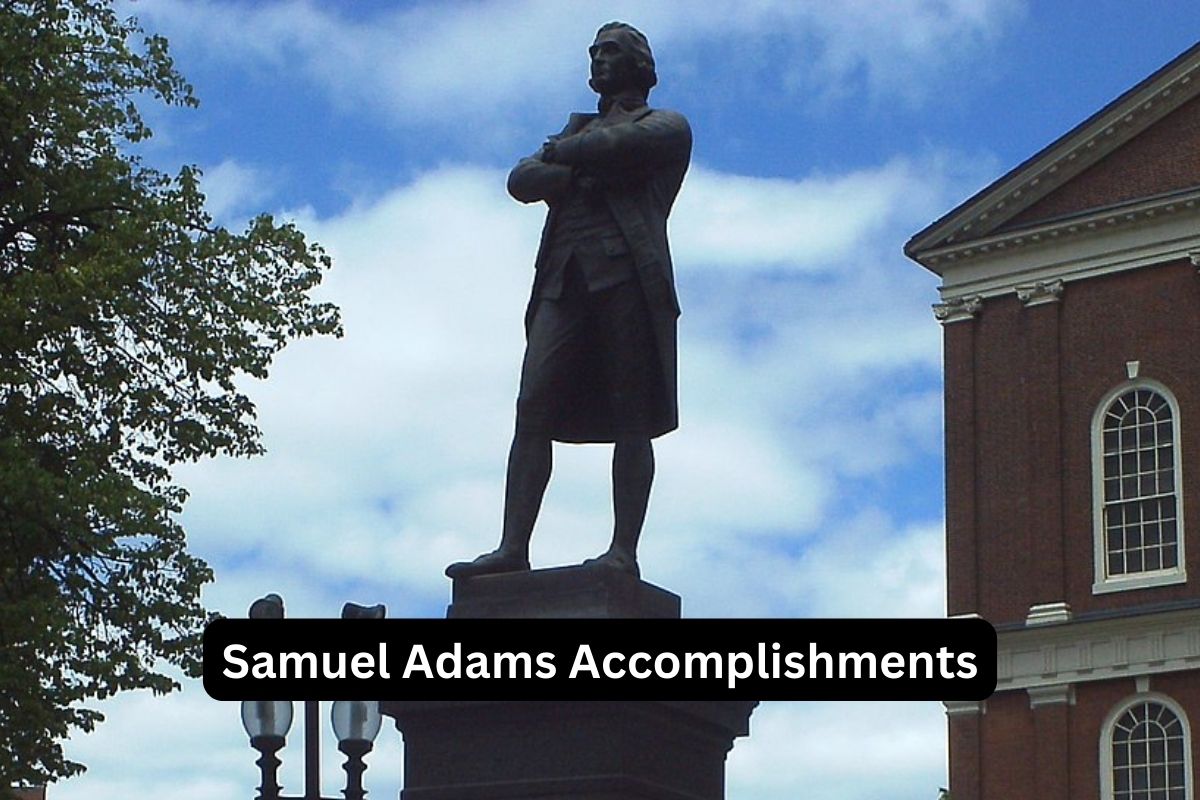Samuel Adams, a Founding Father of the United States, was a pivotal figure in the American Revolution and the establishment of the nation.
His unwavering commitment to liberty, his political leadership in Massachusetts, and his influential role in organizing key events like the Boston Tea Party have cemented his place in history.
Adams was a member of the Continental Congress, a signatory of the Declaration of Independence, and a fervent advocate for American rights and independence. As a supporter of the U.S. Constitution’s ratification, he played a crucial part in shaping the early government.
Serving as the Governor of Massachusetts, Adams contributed to the development of the state and left a lasting legacy as a patriotic leader in American history.
Accomplishments of Samuel Adams
1. Founding Father
Samuel Adams is recognized as one of the prominent Founding Fathers of the United States. Alongside figures like George Washington, Benjamin Franklin, and Thomas Jefferson, Adams played a crucial role in shaping the foundation of the nation.
Also Read: Facts About Samuel Adams
His unwavering commitment to liberty, self-governance, and independence made him a key figure during the American Revolution and the subsequent formation of the United States.

2. Political Leadership in Massachusetts
Throughout his career, Samuel Adams held various political positions in the state of Massachusetts. He served as a member of the Massachusetts House of Representatives from 1765 to 1774, representing the city of Boston.
In this role, Adams emerged as a powerful voice for the rights of the colonists and vehemently opposed British taxation policies, such as the Stamp Act and the Townshend Acts.
His political leadership in Massachusetts laid the groundwork for the resistance movement against British rule.
3. Committees of Correspondence
Samuel Adams played a pivotal role in establishing and organizing the Committees of Correspondence. These committees were a means of communication and coordination among the American colonies during the period of rising tensions with Britain.
Also Read: Timeline of Samuel Adams
Adams, recognizing the need for unity and collective action, pushed for the establishment of these committees to facilitate the exchange of information and ideas.
The Committees of Correspondence played a significant role in galvanizing colonial opposition, fostering a sense of solidarity, and disseminating revolutionary ideas, ultimately contributing to the mobilization for independence.
4. Organizer of the Boston Tea Party
Samuel Adams is widely recognized as one of the key organizers of the Boston Tea Party, which took place on December 16, 1773.
In response to the British government’s Tea Act, which granted a monopoly to the East India Company and imposed taxes on tea, Adams and his fellow Patriots orchestrated a daring act of protest.
Disguised as Mohawk Native Americans, they boarded three British ships docked in the Boston Harbor and dumped 342 chests of tea into the water.
This bold act of defiance against British taxation policies became a symbol of resistance and played a significant role in fueling the revolutionary spirit among the American colonists.
5. Member of the Continental Congress
Samuel Adams was a prominent member of the Continental Congress, a body that represented the interests of the thirteen American colonies and played a vital role in the path to independence.
Adams served as a delegate from Massachusetts in the First Continental Congress in 1774 and continued to be an active participant in subsequent Congresses until 1781.
During his time in the Continental Congress, Adams fervently advocated for independence, supported military action against British forces, and played a role in drafting crucial documents such as the Olive Branch Petition and the Declaration of Independence.
6. Signatory of the Declaration of Independence
As a delegate from Massachusetts, Samuel Adams played an instrumental role in the drafting and signing of the Declaration of Independence.
On July 4, 1776, Adams joined other representatives from the thirteen colonies in adopting this historic document, which proclaimed the colonies’ independence from British rule.
Adams’ signature on the Declaration further solidified his commitment to liberty and self-governance and secured his place in history as a signer of one of the most influential documents in American history.
7. Advocate for American rights and independence
Samuel Adams was a passionate advocate for the rights and freedoms of the American colonists. He firmly believed in the principles of self-governance, individual liberties, and resistance against oppressive rule.
Through his writings, speeches, and political actions, Adams tirelessly championed the cause of American independence. He articulated the grievances of the colonists, exposed the injustices of British policies, and mobilized public support for the revolutionary movement.
Adams’ unwavering commitment to American rights made him a revered figure and a driving force behind the push for independence.
8. Supporter of the U.S. Constitution’s ratification
After the American Revolution and the establishment of the United States as an independent nation, Samuel Adams continued to be actively involved in shaping the country’s future.
He strongly supported the ratification of the U.S. Constitution, which was drafted in 1787 and outlined the structure and principles of the new federal government.
Despite initially having reservations about the lack of explicit protection for individual rights, Adams recognized the importance of a strong central government and the need for unity among the states.
He used his influence to advocate for the Constitution’s ratification and played a significant role in securing support for its adoption.
9. Governor of Massachusetts
Samuel Adams served as the Governor of Massachusetts, holding the position for two separate terms. From 1794 to 1797 and again from 1800 to 1807, he occupied this influential role, bringing his experience, leadership, and vision to the governance of the state.
As governor, Adams prioritized issues such as economic development, education, and public welfare. He worked to strengthen the state government, promote the interests of Massachusetts, and uphold the democratic principles he had fought for throughout his career.
10. Legacy as a patriotic leader in American history
Samuel Adams left a lasting legacy as a patriotic leader and one of the key figures in the founding of the United States.
His tireless efforts in advocating for American rights, his instrumental role in the American Revolution, and his contributions to the establishment of the new nation are widely recognized and celebrated.
Adams’ dedication to liberty, his fiery spirit of resistance against tyranny, and his unwavering commitment to the principles of self-governance continue to inspire generations of Americans. He is remembered as a passionate patriot, a skilled political organizer, and a significant figure in American history.
